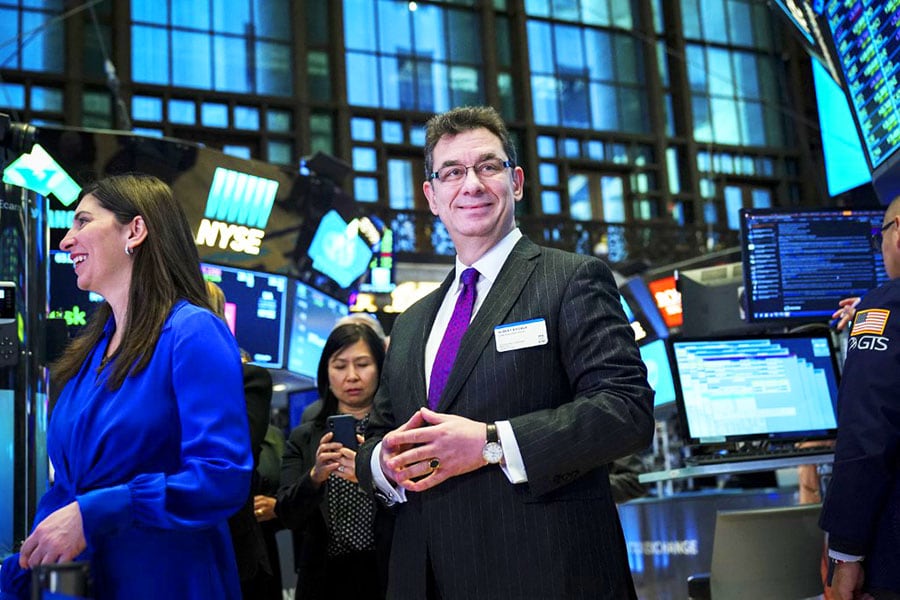
Pfizer CEO: Do a good job, people will notice
Albert Bourla says learning from others was key to his success at Pfizer
 Albert Bourla, CEO, Pfizer pharmaceutical company
Image: Drew Angerer/Getty Images/AFP
Albert Bourla, CEO, Pfizer pharmaceutical company
Image: Drew Angerer/Getty Images/AFP
Albert Bourla says he never planned to become a CEO. When he joined Pfizer in 1993, after earning a Ph.D. from a veterinary school in Greece, Bourla says he knew his calling was industry, not academia. He said clarity about his true passion has been one of the foundations of his success.
“I’ve never seen someone who became successful without liking what he or she was doing,” Bourla said.
Bourla shared insights about his career and about leading Pfizer during one of the most critical periods of history with Dean Bill Boulding as part of the Distinguished Speakers Series at Duke University’s Fuqua School of Business.
Developing Leadership Perspective
Bourla’s first job at Pfizer was in the animal health unit. Bourla said because the unit was a smaller division of the company he learned how to work quickly, with fewer resources and in a customer-oriented way. Bourla said the smaller division also had a strong sense of pride in belonging.[This article has been reproduced with permission from Duke University's Fuqua School of Business. This piece originally appeared on Duke Fuqua Insights]







